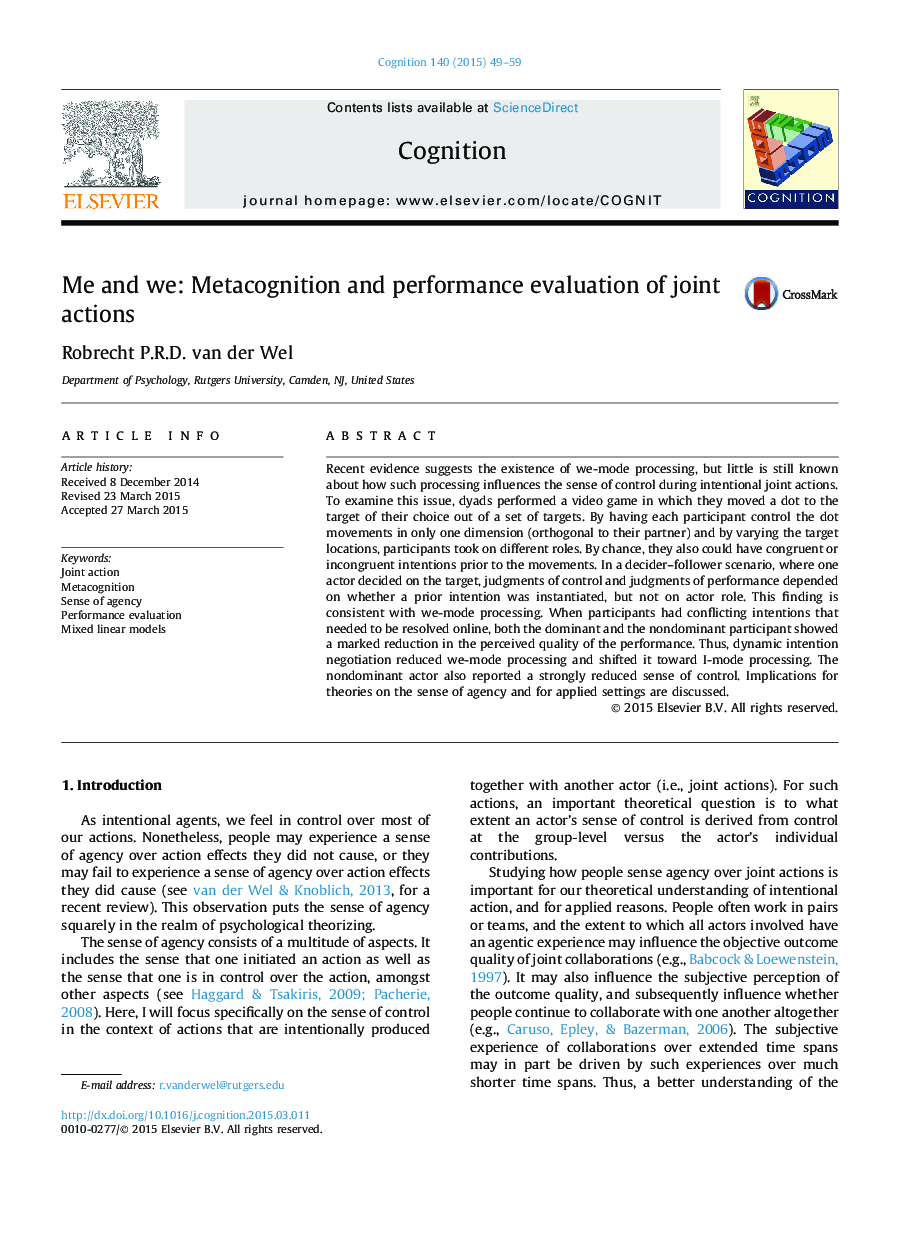| Article ID | Journal | Published Year | Pages | File Type |
|---|---|---|---|---|
| 7287029 | Cognition | 2015 | 11 Pages |
Abstract
Recent evidence suggests the existence of we-mode processing, but little is still known about how such processing influences the sense of control during intentional joint actions. To examine this issue, dyads performed a video game in which they moved a dot to the target of their choice out of a set of targets. By having each participant control the dot movements in only one dimension (orthogonal to their partner) and by varying the target locations, participants took on different roles. By chance, they also could have congruent or incongruent intentions prior to the movements. In a decider-follower scenario, where one actor decided on the target, judgments of control and judgments of performance depended on whether a prior intention was instantiated, but not on actor role. This finding is consistent with we-mode processing. When participants had conflicting intentions that needed to be resolved online, both the dominant and the nondominant participant showed a marked reduction in the perceived quality of the performance. Thus, dynamic intention negotiation reduced we-mode processing and shifted it toward I-mode processing. The nondominant actor also reported a strongly reduced sense of control. Implications for theories on the sense of agency and for applied settings are discussed.
Related Topics
Life Sciences
Neuroscience
Cognitive Neuroscience
Authors
Robrecht P.R.D. van der Wel,
